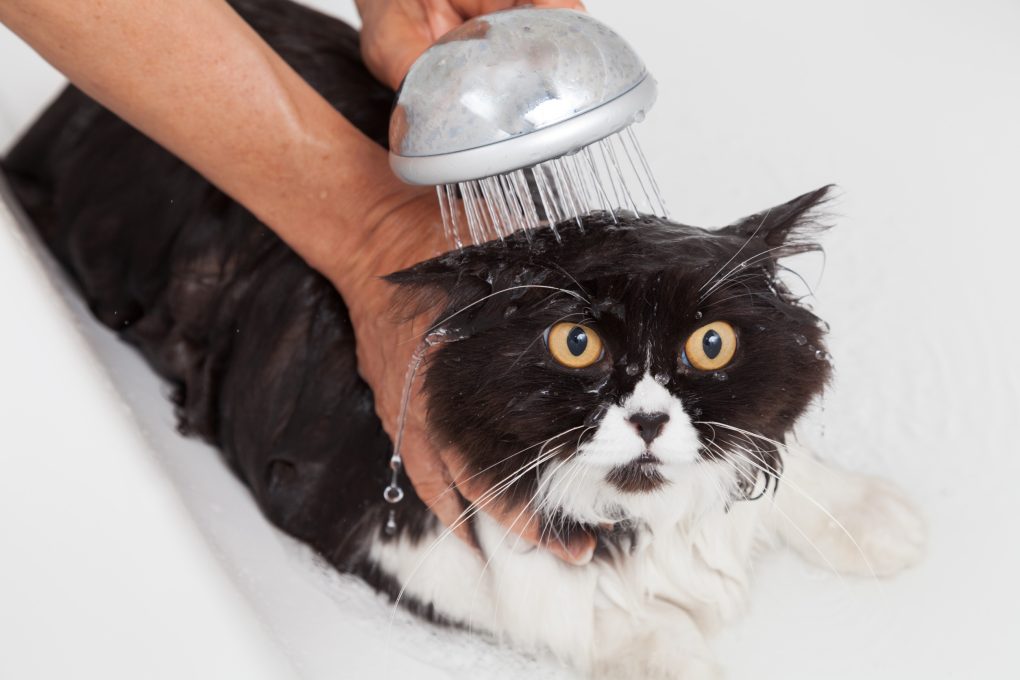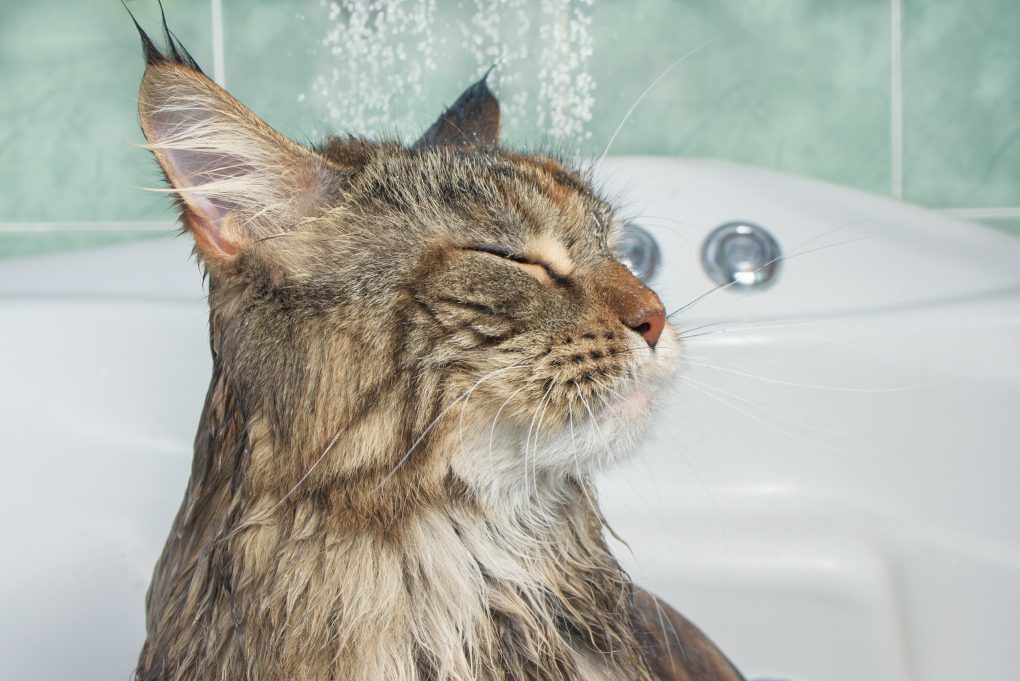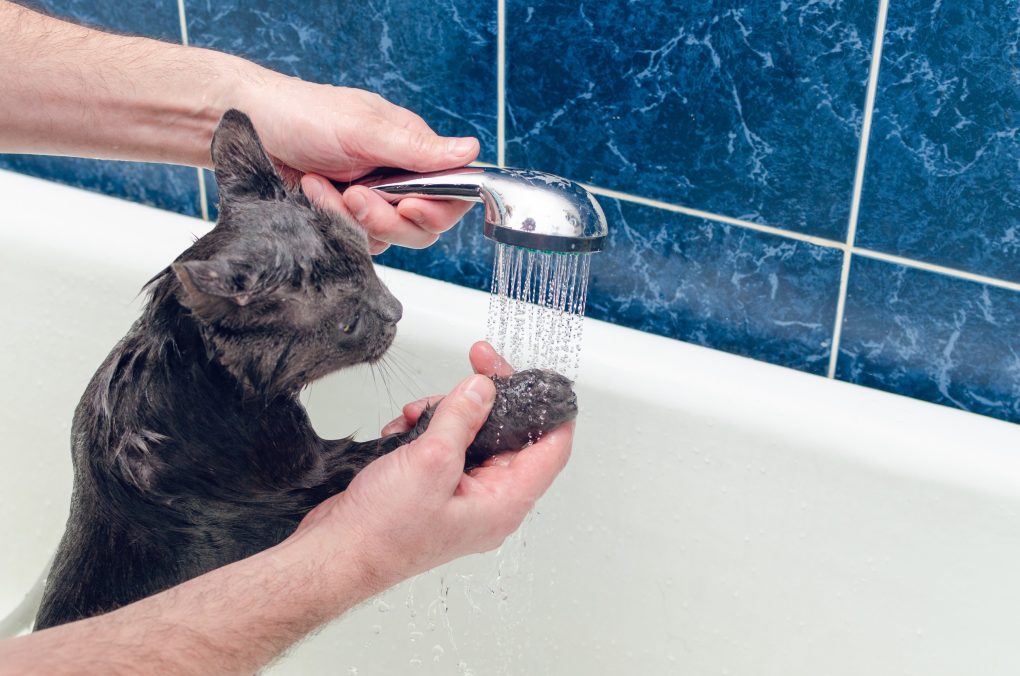Can You Use Dog Shampoo on a Cat: Everything You Need to Know When It Comes to Dog Shampoo for Cats
No, you cannot use dog shampoo on a cat. This is because dogs and cats have different skin pH levels, and their skin and coat require different grooming products. Dog shampoos may contain safe ingredients for dogs but can harm or irritate cats. For example, some dog shampoos may contain pyrethrin, an insecticide that is toxic to cats.
Cats are also known to be more sensitive to strong scents, and some dog shampoos may have fragrances that are overpowering for a cat’s keen sense of smell. Therefore, using a cat-specific shampoo formulated for their unique needs is best. If you need help deciding what shampoo to use for your cat, it’s always a good idea to consult your veterinarian.


Table of Contents
Risks of Using Dog Shampoo on Cats
Irritation and Allergic Reactions
Using dog shampoo on cats can cause allergic reactions because dogs and cats have different skin pH levels, and their skin requires different grooming products. As mentioned, dog shampoos may contain ingredients that can be harmful or irritating to cats.
When a cat’s skin comes into contact with an ingredient it’s allergic to, its immune system may react by releasing histamines, which can cause an allergic reaction. Common signs of an allergic reaction in cats include skin irritation, itching, redness, swelling, and hives.
Cats have sensitive skin and are prone to allergies, and using a shampoo that is not formulated for their skin can cause skin irritation and allergic reactions. Therefore, it’s important always to use a shampoo specifically formulated for cats and avoid using products that may contain ingredients known to cause allergies or irritation.
Skin Dryness
Using dog shampoo on cats can cause skin drying because the skin and coat of cats and dogs have different pH levels and require different grooming products. Dog shampoos are typically formulated for the pH level of dogs, which is more alkaline, while cats have a more acidic pH level.
When the pH level of a shampoo is not matched to the pH level of a cat’s skin, it can strip away natural oils that are important for maintaining healthy skin and coat. The natural oils produced by a cat’s skin help keep its skin moisturized and supple, which helps prevent dryness and flakiness.
When a cat’s skin is exposed to a too-alkaline shampoo, it can disrupt the balance of natural oils, causing the skin to become dry and itchy. Dry skin can also weaken the skin barrier, making cats more susceptible to infections and other skin issues.
Using dog shampoo on cats can also strip away too much of the natural oils on their coat, leaving their fur dry, brittle, and prone to breakage. This can result in a dull, lackluster coat more prone to matting.
Toxicity
As discussed, using dog shampoo on cats can cause toxicity because some dog shampoos contain safe ingredients for dogs but can be harmful or even toxic to cats. In addition, cats are more sensitive to certain chemicals than dogs, and exposure to these chemicals can lead to serious health issues.
One of the most common ingredients in dog shampoos that can be toxic to cats is pyrethrin. Pyrethrins are insecticides commonly used in dog flea shampoos, but they can be highly toxic to cats. Pyrethrin toxicity in cats can cause symptoms such as tremors, seizures, hyperexcitability, and even death in severe cases.
In addition to pyrethrin, other ingredients commonly found in dog shampoos that can be toxic to cats include tea tree oil, citrus extracts, and certain preservatives. These ingredients can cause skin irritation, allergic reactions, and even cat organ damage.
It’s important to always read the label of any grooming product before using it on your cat and to avoid using any product that contains ingredients known to be toxic to cats. For example, if you suspect your cat has ingested or been exposed to a toxic ingredient, seek veterinary care immediately. Your veterinarian can help identify the cause of the toxicity and provide appropriate treatment to help your cat recover.
Behavioral Changes
Using dog shampoo on cats may cause behavioral changes because cats are sensitive to changes in their environment, and using unfamiliar or unpleasant products can cause stress and anxiety in cats. For example, the scent and texture of dog shampoo may be unpleasant or unfamiliar to cats, which can cause them to feel uncomfortable or distressed during the bathing process.


Cats may exhibit behavioral changes such as hiding, meowing excessively, or trying to escape during or after being bathed with dog shampoo. This is because they may feel threatened or unsafe, which can lead to behavioral changes.
Moreover, if a cat is experiencing discomfort or irritation from using dog shampoo, it may display behavioral changes such as excessive grooming, scratching, or licking. These behaviors may be a way for cats to alleviate discomfort, but they can cause further skin irritation and even lead to self-injury.
To help minimize behavioral changes during bathing, it’s important to create a calm and relaxing environment for your cat. This can include playing soothing music, using calming pheromones, or providing treats and positive reinforcement during and after bathing.
Alternatives to Dog Shampoo for Cats
Cat-Specific Shampoo
Cat-specific shampoos are better for cats than dog shampoos because they are formulated to meet the specific needs of a cat’s skin and coat. In addition, cat-specific shampoos are formulated to match a cat’s pH level.
Cat-specific shampoos also contain ingredients that are gentle and non-irritating to a cat’s skin, such as natural oils, aloe vera, and oatmeal. These ingredients can help soothe and moisturize a cat’s skin while nourishing its coat, leaving it soft and shiny.
Using a cat-specific shampoo can also help prevent behavioral changes in cats, as they are more likely to be comfortable with a familiar scent and texture of the shampoo. This can make the bathing process less stressful and anxiety-inducing for cats, leading to a more positive experience for both the cat and the owner.
Water-Only Bath
Water-only baths are better for cats than dog shampoo because cats are known for their meticulous grooming habits, and their skin and coat have unique characteristics requiring gentle care.


Cats have a natural oil on their skin and fur called sebum, essential for keeping their skin and coat healthy and moisturized. Overbathing a cat, or using harsh products like dog shampoo, can strip away this protective layer of oils, leaving the skin dry and itchy.
Water-only baths can help remove dirt and debris from a cat’s coat without stripping away natural oils. Additionally, cats are known to dislike water and can become stressed and anxious during the bathing process. By avoiding shampoo, you can minimize the time and stress of the bathing process, making it a more positive experience for you and your cat.
Dry Shampoo
Dry shampoo can be a better option for cats than dog shampoo because it doesn’t require the cat to be wetted or rinsed off, which can be stressful and uncomfortable for many cats. Additionally, dry shampoo can help remove dirt and excess oil from a cat’s fur without stripping away natural oils, which is important for maintaining healthy skin and coat.
This shampoo is formulated with gentle ingredients safe for cats, such as cornstarch, baking soda, or kaolin clay. These ingredients absorb excess oil and dirt from a cat’s fur, leaving it looking and smelling fresher.
However, it’s important to note that dry shampoo should not substitute for regular baths with cat-specific shampoo. While dry shampoo can be useful for spot-cleaning certain areas or in between baths, it does not provide the same level of deep cleaning as a regular bath with shampoo.
